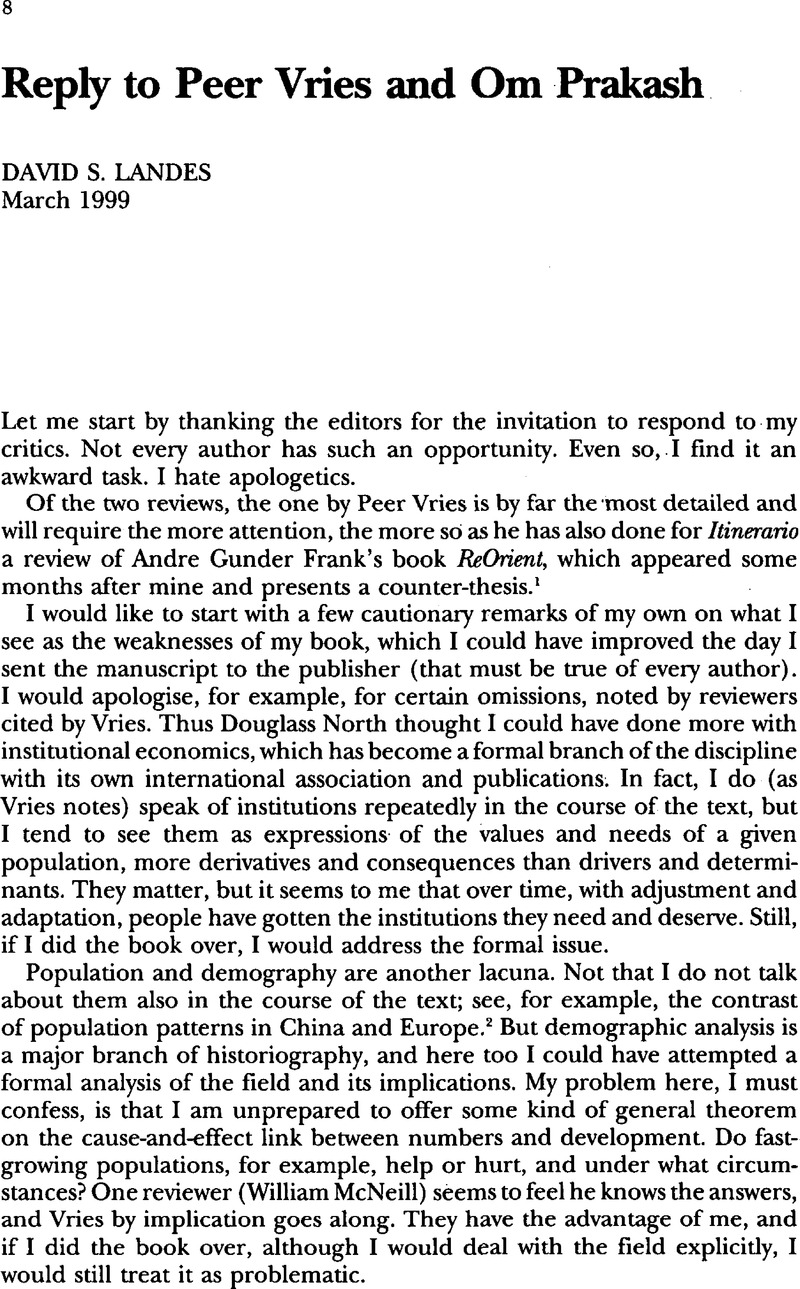Article contents
Reply to Peer Vries and Om Prakash
Published online by Cambridge University Press: 22 April 2010
Abstract

- Type
- Reactions from our Readers
- Information
- Copyright
- Copyright © Research Institute for History, Leiden University 1999
References
Notes
1 Frank, Andre Gunder, ReORIENT: Global Economy in the Asian Age (London and Los Angeles, 1998)Google Scholar.
2 Landes, David S., The Wealth and Poverty of Nations: Why Some Are so Rich and Others Are so Poor (London 1998)Google Scholar.
3 Landes, The Wealth and Poverty of Nations, 215–216.
4 Vries, Peer, ‘Culture, Clocks and Comparative Costs: David Landes on the Wealth of the West and the Poverty of the Rest’, Itinerario 22/3 (1998) 72CrossRefGoogle Scholar.
5 Landes, The Wealth and Poverty of Nations, 28.
6 Ibid., 232.
7 Vries, ‘Culture, Clocks and Comparative Costs’, 79 and note 53.
8 Vries asks whether Ricardo intended the principle to be static. I can not say offhand; but there is no question that that is the way it was and is used, and that is understandable. Once one accepts the mobility of comparative advantage, it offers precious little guidance to public, if not private, policy.
9 Vries, ‘Culture, Clocks and Comparative Costs’, 78.
10 Itinerario, 22/3 (1998) 19CrossRefGoogle Scholar. This may have been meant ironically (capital B, capital T), as a way of separating himself from Frank, but in fact the review does treat eurocentrism as a bad thing.
11 Vries, ‘Culture, Clocks and Comparative Costs’, 81.
12 Smith, Adam, An Inquiry into the Nature and Causes of the Wealth of Nations I (Indianapolis 1981)Google Scholar chapter xi, Part 3, Third period.
13 Vries, Peer, ‘Should we really ReORIENT?’, Itinerario 22/3 (1998) 35CrossRefGoogle Scholar.
14 Landes, The Wealth and Poverty of Nations, 157.
- 1
- Cited by


